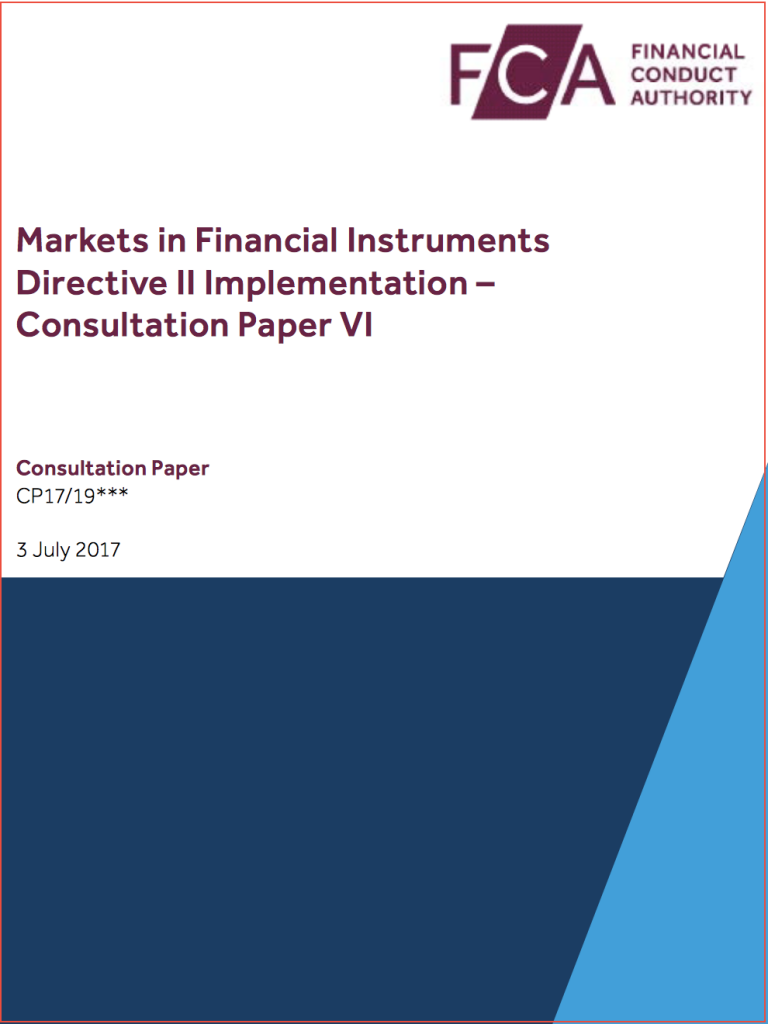 Scores of local authorities could still be forced to dump some of their current assets, despite the Financial Conduct Authority (FCA’s) softening its approach to the implementation of European Union investment regulations.
Scores of local authorities could still be forced to dump some of their current assets, despite the Financial Conduct Authority (FCA’s) softening its approach to the implementation of European Union investment regulations.
The FCA this week released its response to a consultation about implementation of new MIFID II rules from next year, which had caused consternation in the sector.
Among the changes, it has lowered the threshold above which councils can be upgraded to “professional client” status from their new default “retail” status. The threshold drops £15m to £10m.
The FCA consultation response said: “We believe £10m is closer to our policy goal of restricting the ability of the smallest, and by implication the least sophisticated, local authorities (town and parish councils, and the smallest county and district councils) to opt-up, but giving larger ones the ability to do so more readily, (provided they meet the other criteria).”
Last year, the FCA estimated the number of councils which would be unable to opt-up under a £15m threshold at 78, using 2015-16 data. It now says that number has dropped to 42 under its proposal for a £10m threshold.
David Green, client director at treasury adviser Arlingclose, said: “Some of those may be happy using only non-MIFID investments such as bank deposits and local authority loans, where the retail/professional split doesn’t matter.
“But smaller districts and parishes wanting to use low risk investments like money market funds, treasury bills and covered bonds will need brokers or fund managers willing to deal with retail clients.”
He added that most fund managers already serve retail clients, but “it’s quite possible that brokers and other firms that currently only serve professional clients might not extend their regulatory permissions if the number of affected clients is low and they don’t expect to generate the additional income to cover the additional costs”.
Game
Green also said that this could encourage some authorities to game the system. He said: “I expect some with a natural investment balance of say £8m will be tempted to increase this to £10m by short-term borrowing, and if this gives them access to a wider range of low risk investment instruments then it might be a sensible course of action.”
In addition, the FCA has stuck to its guns over a test that will require local authorities or their pension funds to undertake a minimum of 10 transactions a quarter to qualify for professional status.

The FCA response said: “We accept that some local authorities will not be able to meet this part of the quantitative test (particularly when investing pension funds).
“However, it continues to be our view that regular and recent experience of carrying out relevant transactions remains a useful proxy for assessing sophistication.”
Here, Bob Swarup, principal at investment and risk advisory firm Camdor, played down fears that authorities could undertake unnecessary transactions to meet this target.
He said: “There will inevitably be fears of gaming, but as the FCA notes, this would run contrary to the prudent person principle that underpins the approach to investments of local authorities.
“It does, however, also mean that governance moves up the agenda as local authorities look to demonstrate prudence without losing efficiency. Having a holistic approach focused on distilling key factors and management actions will be critical.”
LGPS
On pensions, the FCA has also decided to allow Local Government Pension Scheme (LGPS) funds to use their status under LGPS regulations to help achieve professional client status.
The FCA said: “This will assist all local authority pension fund administrators who wish to opt-up to meet the quantitative test, butmaintain the need for local authorities to qualitatively demonstrate their sophistication to become professional clients.”
Jeff Houston, LGA head of pensions and secretary to the LGPS Advisory Board said: “Landing where we have is a significant achievement, brought about by the Board, the LGA and the IA working together with the support of bodies such as PLSA, CIPFA and BVCA.
“Together with the invaluable input of LGPS fund officers, individual asset managers and others in the sector this coalition has helped to create the necessary level of understanding and the will to ensure LGPS authorities can opt up successfully.
“Now we can get on with the challenge of providing a straightforward and consistent opt up process to make sure we are all there by January”.
In another change, the FCA has made it clear that rules relating to the expertise of the “person” carrying out transactions also applies to a group of people.
It said: “Given different governance arrangements, we cannot be prescriptive, but we would stress the importance of firms exercising judgement and ensuring that they understand the arrangements of the local authority and the clear purpose of this test.
“It remains a test of the individual, or respectively the individuals who are ultimately making the investment decisions, but governance and advice arrangements supporting those individuals can inform and contribute to the firm’s assessment.”
Timeframe
In the round, Swarup voiced concerns that some authorities will struggle put processes in place, evidence their frameworks and engage with counterparties by next February, when they come into force.
He said: “Fund managers and banks will be more careful now to demand evidence from local authorities as well, especially as they worry about straying onto the wrong side of the regulator. There is nothing wrong in that and many local authorities are quite capable of demonstrating their knowledge and understanding.
“However, what is shocking is how many local authorities have been abandoned to bridge the gap between yesteryear and tomorrow by themselves. It is not hard but there are processes to put in place, aspects of the framework to evidence and an active engagement with counterparties to undertake if they are to be ready for a MIFID II world.”
The Local Government Association welcomed the changes outlined by the FCA, but said: “The LGA was never convinced of the benefits of a move to retail client status and we expressed our concerns to the FCA about the potential costs, loss of value and restrictions to investment that could follow.
“We do recognise that a more straightforward process for ‘opting up’ to elected professional status is a significant step in the right direction.”












